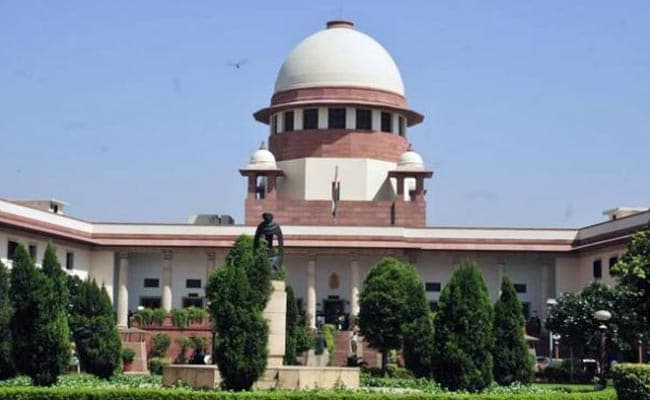
Supreme Court accorded its nod to the Centre's graded response action plan to tackle pollution
New Delhi:
Lauding Supreme Court's nod to the Centre's graded response action plan to tackle pollution, a green body on Saturday urged the government to implement a similar system at the national-level as well.
Greenpeace India emphasised that air pollution is not restricted to Delhi and the national capital region. "The graded response system in Delhi is a very important milestone indeed, but we still have miles to go in order to let the country breathe.
"The lessons learnt from Delhi must be implemented in areas around the Indo-Gangetic Plains and entire India, which have equally deplorable air quality due to particulate matter from coal, oil and biomass," said Sunil Dahiya, campaigner, Greenpeace India.
The Delhi-NCR plan calls for several measures that must be implemented immediately and permanently, it said.
"These measures, which include, higher parking charges, greater investment in public transport and pollution free mobility, measures to stop garbage burning and strict enforcement of PUC norms as well as emission standards for power plants and industries, need to be in force all year-round.
"Once the pollution levels become critical, it is too late. Pollution levels take days to build up and implementing the measures introduces more delay. No country has solved its air pollution problems by tying enforcement of standards to wind conditions only," he pointed out.
The Supreme Court had on Friday accorded its nod to the Centre's graded response action plan to tackle different levels of pollution and asked the Central Pollution Control Board (CPCB) to upgrade its existing infrastructure and set up additional monitoring stations in Delhi-NCR within six months.
Greenpeace said an IIT Kanpur study mentioned that 13 thermal power plants within a 300 km radius of Delhi need to be regulated to see significant improvements in air quality in the national capital.
"So it's important that the the emergency measures also include directions to shut down those power plants, along with Badarpur," Dahiya said.
Besides this, he said the central government's indication of easing deadlines for thermal power plants for implementing the new emission limits is also disturbing.
"The proposed new thermal power plant standards must come into force as soon as possible. Plant operators will only be able to reduce pollution load significantly if the pollution control devices are installed without any further delay.
"Any further delay will cost the lives of thousands of Indians. The government must resist any pressure to delay implementation of new fuel standards as well," he said.
Greenpeace India also called for a comprehensive and systematic national action plan.
Greenpeace India emphasised that air pollution is not restricted to Delhi and the national capital region. "The graded response system in Delhi is a very important milestone indeed, but we still have miles to go in order to let the country breathe.
"The lessons learnt from Delhi must be implemented in areas around the Indo-Gangetic Plains and entire India, which have equally deplorable air quality due to particulate matter from coal, oil and biomass," said Sunil Dahiya, campaigner, Greenpeace India.
The Delhi-NCR plan calls for several measures that must be implemented immediately and permanently, it said.
"These measures, which include, higher parking charges, greater investment in public transport and pollution free mobility, measures to stop garbage burning and strict enforcement of PUC norms as well as emission standards for power plants and industries, need to be in force all year-round.
"Once the pollution levels become critical, it is too late. Pollution levels take days to build up and implementing the measures introduces more delay. No country has solved its air pollution problems by tying enforcement of standards to wind conditions only," he pointed out.
The Supreme Court had on Friday accorded its nod to the Centre's graded response action plan to tackle different levels of pollution and asked the Central Pollution Control Board (CPCB) to upgrade its existing infrastructure and set up additional monitoring stations in Delhi-NCR within six months.
Greenpeace said an IIT Kanpur study mentioned that 13 thermal power plants within a 300 km radius of Delhi need to be regulated to see significant improvements in air quality in the national capital.
"So it's important that the the emergency measures also include directions to shut down those power plants, along with Badarpur," Dahiya said.
Besides this, he said the central government's indication of easing deadlines for thermal power plants for implementing the new emission limits is also disturbing.
"The proposed new thermal power plant standards must come into force as soon as possible. Plant operators will only be able to reduce pollution load significantly if the pollution control devices are installed without any further delay.
"Any further delay will cost the lives of thousands of Indians. The government must resist any pressure to delay implementation of new fuel standards as well," he said.
Greenpeace India also called for a comprehensive and systematic national action plan.
Track Latest News Live on NDTV.com and get news updates from India and around the world

